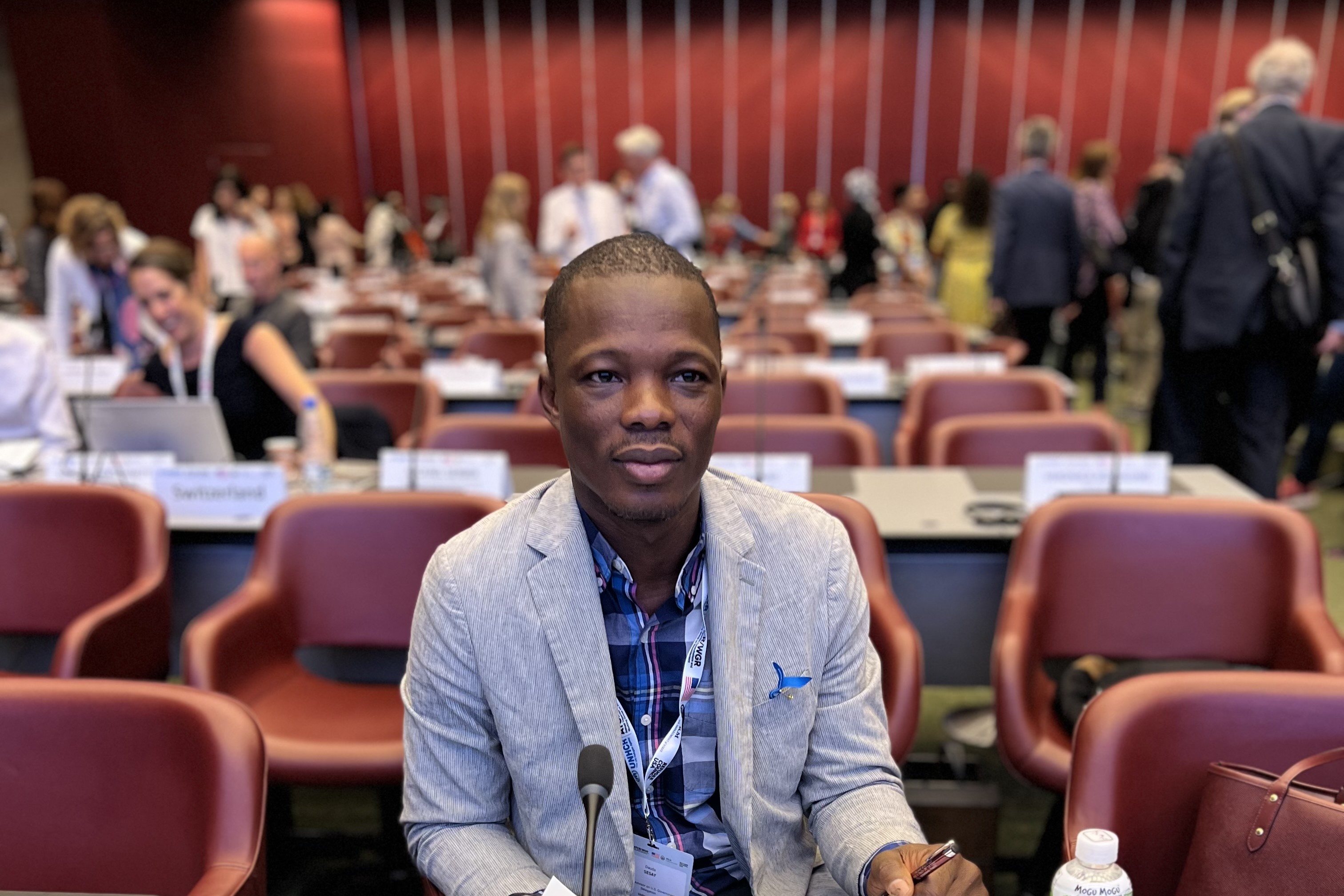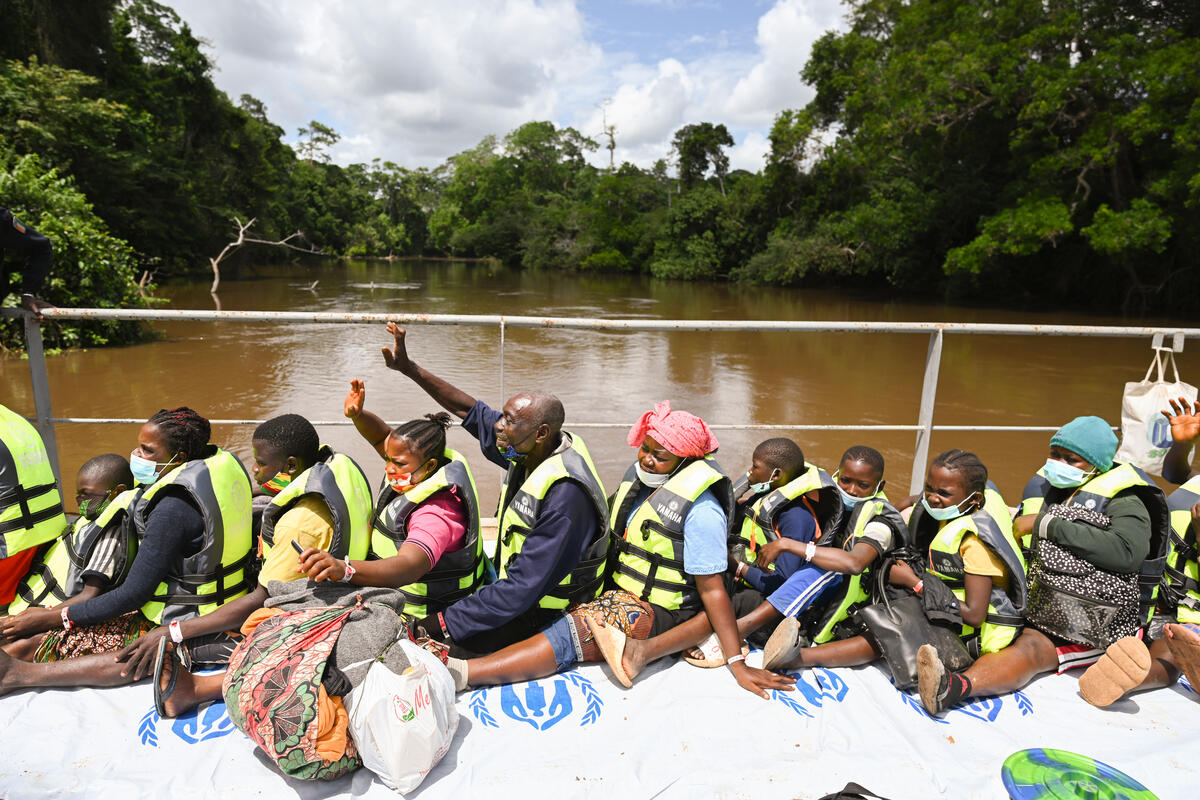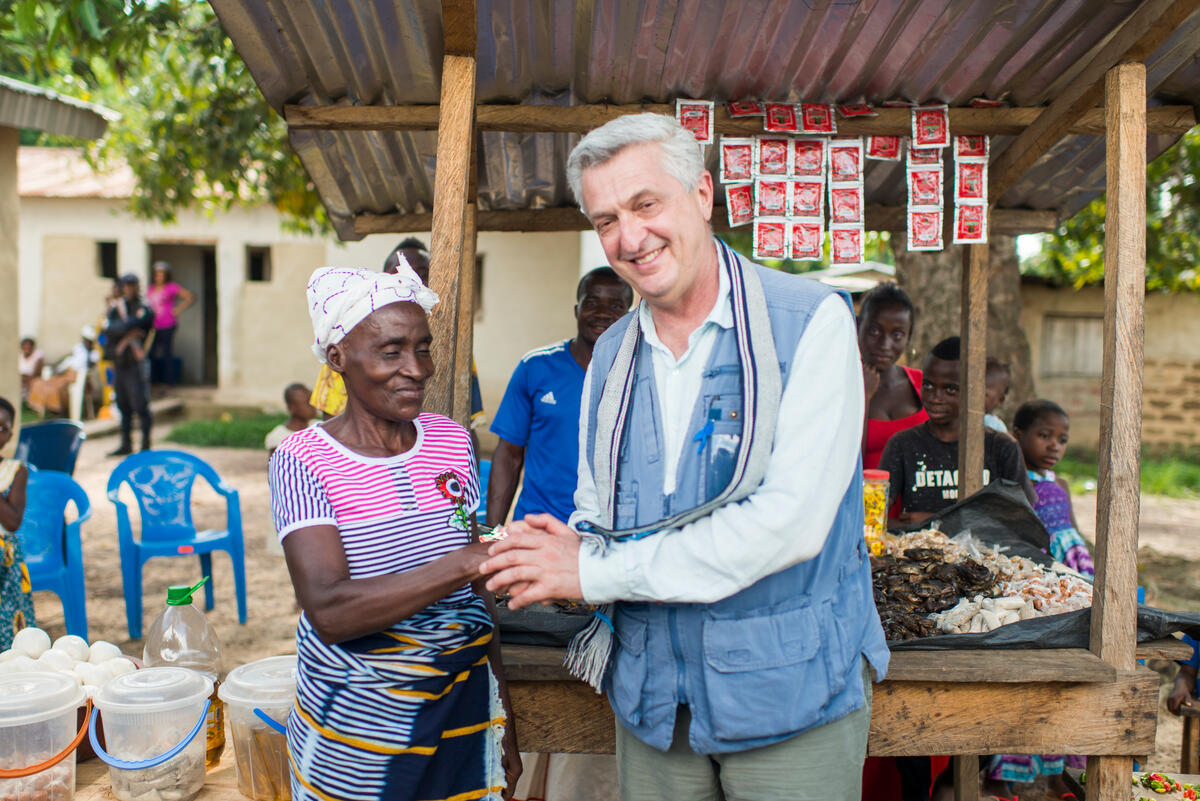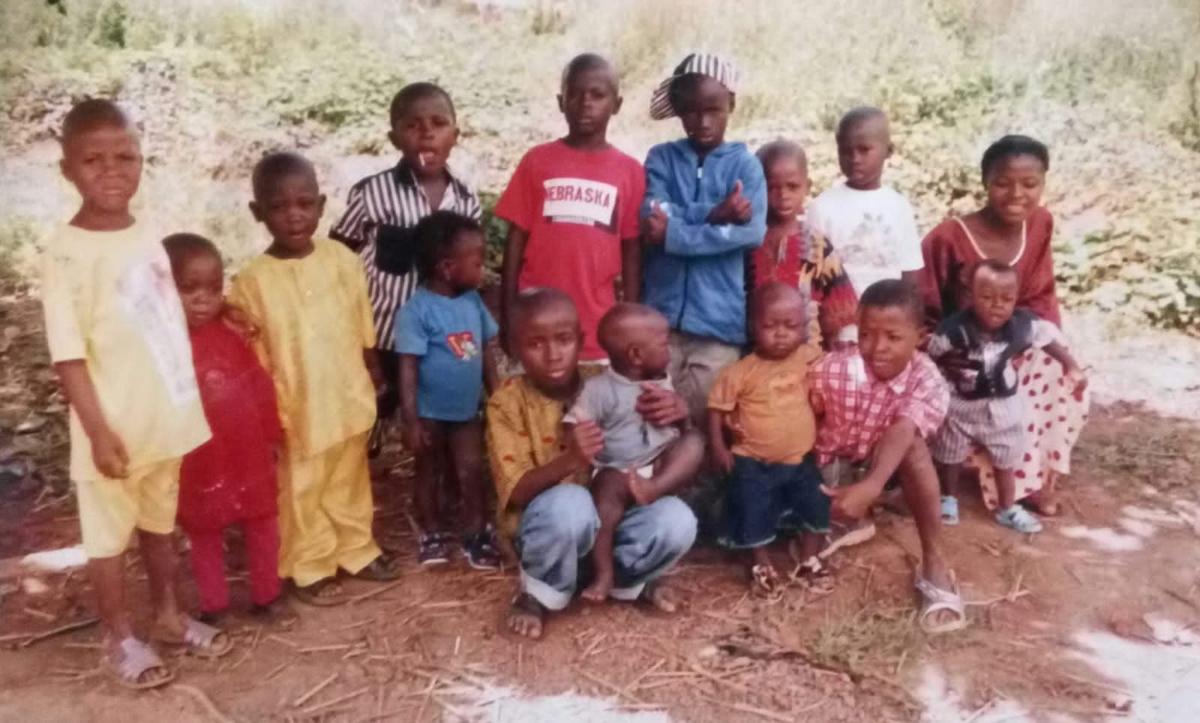Liberian refugees reap harvest of labour
Liberian refugees reap harvest of labour

BANDAJUMA CAMP, Sierra Leone, Nov 3 (UNHCR) - When Sierra Leonean President Ahmad Tejan Kabbah declared, "Nobody in Sierra Leone will go to bed hungry by 2007", he probably did not expect that Liberian refugees, too, would heed his clarion call for food sufficiency.
But they did. And as people through the country start harvesting their rice fields, two Liberian refugees have received awards recognising their farming achievements in their host community.
Last Friday, a symbolic rice harvesting ceremony was held in Bandajuma camp, one of the eight camps hosting Liberian refugees in Sierra Leone. The ceremony also aimed to recognise the good work of farmers in the host community of Sowa chiefdom in Pujehun district, southern Sierra Leone, by giving them certificates that the Food and Agriculture Organization (FAO) calls the "Master Farmers Excellence Awards".
Two local farmers and two refugee farmers, Emmanuel T. Yasadu and Fredrick S. Borwah, received these certificates, which were jointly signed by the government of Sierra Leone and the UNHCR and FAO representatives in the country.
"This certificate is a big encouragement to us," said Borwah, recalling that when he fled to Sierra Leone, his wish had always been to continue the work he did back home - farming. "To me, this certificate shows that we are working hard on ensuring food sufficiency."
Rice is a staple food in Liberia. Like in the other seven camps in Sierra Leone, most of the Liberian refugees in Bandajuma camp prefer rice to the bulgur supplied by the World Food Programme. Recognising this, FAO provided seeds to some 200 farmers in Bandajuma after assessing their rice farms.
Some refugees attribute the peace and calm in their camp to the relative food sufficiency, the fact that most of them can now be sure of eating rice every day before going to bed. "A hungry man is an angry man. If we are hungry, we can be easily irritated," said refugee James Kromah.
"These days my children are always happy because we have the first thing needed in every home - food," said the camp's chairwoman, Rebecca Molley. She, her husband and their five children eat rice every day.
During Friday's ceremony, UNHCR protection officer Hélène Daubelcour joined the refugees in expressing gratitude to the government of Sierra Leone and the host community for providing land to the refugees.
The FAO Representative to Sierra Leone, Mohamed Farah, congratulated the refugees on their efforts in ensuring food sufficiency not only for their families but also in Sierra Leone and the West Africa sub-region. While thanking UNHCR for continuing the good work of caring for refugees and the host community for providing them with land, Farah encouraged the refugees to "keep up the good work" and pointed out that the FAO will assist "those farmers who help themselves first."

The refugees expressed their appreciation for the FAO assistance, but appealed for more farmers to benefit from the FAO-supplied seeds come next planting season. They said that farmers who were not fortunate enough to get the FAO seeds got them from other sources, which they always repaid with interest.
The FAO is looking into the appeal, offering the refugees more than a grain of hope for greater food sufficiency.
By Sulaiman Momodu
UNHCR Sierra Leone








